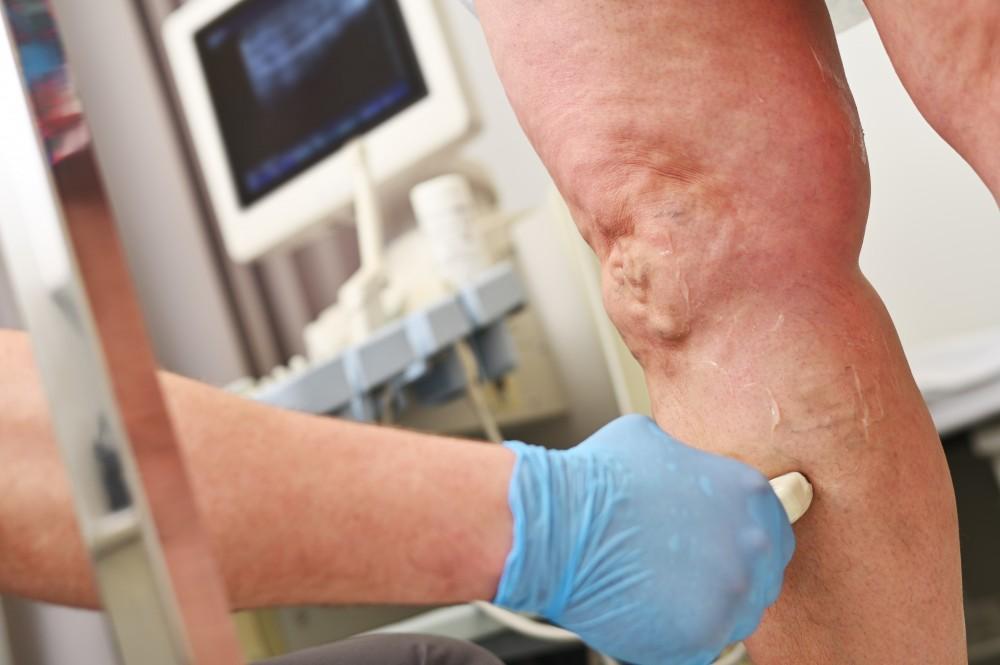
5 Factors That Increase Your Risk of Developing Spider Veins

Spider veins 一 those small, dilated blood vessels visible just beneath your skin 一 are certainly a cosmetic concern. They create visible “webs” across your legs and face.
Below, dual board-certified David T. Jacobs, MD, DABR, DABVLM, explains five factors that increase your risk for developing spider veins and how our team at South Shore Vein and Aesthetic Medicine in Rockville Centre, New York, can help.
1. Age
As you age, your veins naturally weaken and lose elasticity, increasing the risk of spider veins. Aging causes wear-and-tear on the valves in your veins, which can lead to blood pooling and vein dilation.
Most people develop spider veins between the ages of 30 and 50. According to research, 88% of women in the study (and 79% of men) in that age range had spider veins. The good news is that even though spider veins are common, they are typically mild. In fact, about 98% of those with spider veins in the study only had mild cases.
While you can't stop the aging process, adopting healthy lifestyle habits can slow down its effects on your veins.
2. Having a family history of spider veins
Your genetics play a significant role in determining your susceptibility to spider veins. In a study that examined over half a million individuals, researchers found 30 new genetic loci connected to vein issues like varicose veins, spider veins, and deep vein thrombosis.
What does that mean for you? If one or both of your parents have a history of spider veins, you're more likely to develop them. While you can't change your genetic predisposition, knowing your family history can help you be more vigilant about preventative measures.
3. Hormonal fluctuations
Fluctuations in hormone levels, such as those during pregnancy, menopause, or hormonal therapy, can weaken vein walls and contribute to the formation of spider veins.
Estrogen, in particular, has been linked to vein dilation.
4. Prolonged sitting or standing
While the previous three risk factors are out of your control, the next two are within your control.
Jobs or activities involving prolonged standing or sitting periods can contribute to the development of spider veins. When you remain in one position for too long, blood flow becomes sluggish and can lead to increased pressure in your veins.
Over time, this pressure can cause the veins to become dilated and more visible. Taking breaks to move around or elevating your legs when sitting can help improve circulation and reduce the risk of spider veins.
Tip: Set a phone reminder to get up, stretch, and walk around at least once an hour.
5. Weight challenges
Carrying excess weight puts added pressure on your veins, especially those in the legs and lower body. This increased pressure can impair vein function and contribute to the development of spider veins. Maintaining a healthy weight through a balanced diet and regular exercise can reduce the strain on your veins and lower your risk of developing spider veins.
Excess weight also increases your risk of other vascular issues, including varicose veins.
What to do about spider veins
Because some of these risk factors are outside your control, you may still experience spider veins.
They usually aren’t painful or harmful to your health, but you may wish to treat them for cosmetic reasons.
At South Shore Vein and Aesthetic Medicine, our team offers several options for eliminating those pesky spider veins.
Depending on the number, size, and location of your spider veins, Dr. Jacobs may recommend any of the following :
- Cryo-sclerotherapy
- Sclerotherapy
- VeinGogh® for smaller spider veins
- Oxygen foam sclerotherapy for larger spider veins
To learn more about your spider vein treatment options, call our Rockville Centre, New York, office at 516-865-1234. You can also click here to request your consultation.
You Might Also Enjoy...


Facial Veins: Causes, Treatments, and How to Get Rid of Them

Hand Vein Treatment: How to Restore a Youthful Look to Your Hands

Are Varicose Veins Genetic? What You Need to Know About Hereditary Vein Issues

How to Get Rid of Varicose Veins: Top Treatments for Smooth, Healthy Legs


